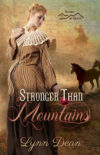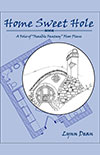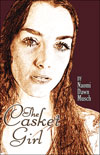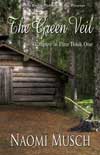A guest post by Sandra Orchard
Do you scratch your head when someone tells you that you need to “show, not tell”? It’s the key to writing compelling commercial fiction, but an often difficult concept to grasp in all its nuances. Today I’m going to share with you some simple ways to…
“Show” emotion without naming it
The trick is in word choice. Each scene in a piece of fiction should be from the point of view (POV) of one character. That character should have a goal, face obstacles to that goal within the scene, and ultimately end up at an impasse where a decision needs to be made.
What I want you to do is look at a scene or story you’ve written and define the mood of your POV character.
Stop reading this post, pull out some of your writing, and try it. Is your hero angry, irritated, frustrated? Is your heroine confused, excited, panicked?
Now, write down some strong nouns and verbs that convey that mood. I emphasize nouns and verbs, because strong writing doesn’t need many adjectives and adverbs.
For example: a character who is angry won’t walk across the room. He’ll storm across the room. He won’t glance at the person he’s talking to. He’ll glare at her. He’ll jab the numbers on his cell phone. He’ll slam the car door.
Next, look at your setting details. Word choice in setting descriptions is a subtle, but powerful way to enhance the emotion of the scene. If your hero is angry, thunderclouds may be piling up on the horizon. If your heroine is wary or confused, dark clouds may bruise the sky. See how the italicized words subconsciously convey a mood?
Here’s one of my favorite examples (from the opening of Deep Cover) of how I use scene description to convey the hero’s mood:
A lone backhoe loomed on the horizon, silhouetted against the steel gray sky, its tires caked in mud. Too bad the machine wasn’t big enough to dig him out of this mess.
Notice how the final sentence is backloaded with the word “mess”.
In the next lesson we’ll look at how to use metaphors and the five senses to empower your writing.
A Challenge
Learning a new writing technique won’t help you if you don’t apply it. So if you want to become a stronger writer try this exercise.
Exercise:
- Read through a page of your writing and underline all the nouns and verbs. Now, go back and try to replace the weakest ones with stronger words that also convey the mood of the POV character. If you have an adjective helping to describe the noun, or an adverb helping to describe the verb, strive to make it obsolete.
- Share your favorite before and after examples in the comment section.
- One more hint for extra power: Look for the strongest word in your sentence. See if you can rewrite the sentence with that word at the end for a stronger emotional punch.
Bio:
 Author Sandra Orchard home educated her three children from kindergarten to grade twelve. Her youngest daughter has followed in her footsteps, writing award-winning short stories and articles for The Canadian Horse Journal and CinchMagazine.com, an Ezine which she also co-edits. Sandra took her first writing course after her first baby was born but for many years wrote only curriculum for her personal use and articles and book reviews for a local homeschooling newsletter. Then, as her children’s learning became increasingly independent and a back injury sidelined the home renovations that had usually filled her free time, she began writing novels. Sandra received news of her first book contract with Love Inspired Suspense (formerly Steeplehill) on her “home school graduation day”—her youngest daughter’s first day of college. What an exciting launch to this new phase of life!
Author Sandra Orchard home educated her three children from kindergarten to grade twelve. Her youngest daughter has followed in her footsteps, writing award-winning short stories and articles for The Canadian Horse Journal and CinchMagazine.com, an Ezine which she also co-edits. Sandra took her first writing course after her first baby was born but for many years wrote only curriculum for her personal use and articles and book reviews for a local homeschooling newsletter. Then, as her children’s learning became increasingly independent and a back injury sidelined the home renovations that had usually filled her free time, she began writing novels. Sandra received news of her first book contract with Love Inspired Suspense (formerly Steeplehill) on her “home school graduation day”—her youngest daughter’s first day of college. What an exciting launch to this new phase of life!
 Deep Cover, the debut novel in Sandra’s Undercover Cops series released in early September. Shades of Truth will follow in March 2012. Passionate about helping aspiring fiction writers strengthen their writing, Sandra judges writing contests and is active in several online writing groups such as ACFW and The Word Guild. Her website www.SandraOrchard.com features reviews on numerous topnotch books for writers, as well as inspiring stories of authors’ writing journeys that encourage aspiring writers to persevere in pursuing their writing dreams and to find joy in the journey.
Deep Cover, the debut novel in Sandra’s Undercover Cops series released in early September. Shades of Truth will follow in March 2012. Passionate about helping aspiring fiction writers strengthen their writing, Sandra judges writing contests and is active in several online writing groups such as ACFW and The Word Guild. Her website www.SandraOrchard.com features reviews on numerous topnotch books for writers, as well as inspiring stories of authors’ writing journeys that encourage aspiring writers to persevere in pursuing their writing dreams and to find joy in the journey.
















Speak Your Mind
You must be logged in to post a comment.